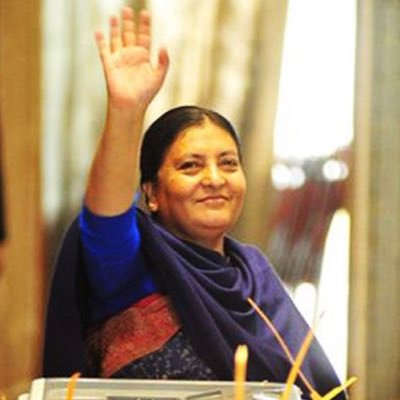Kathmandu: Nepal’s President Bidhya Devi Bhandari Sunday dissolved the House of Representatives as recommended by Prime Minister K.P. Sharma Oli earlier in the day, setting the stage for new elections in April-May next year.
The decision of Oli, who is faces protracted turmoil inside his Nepal Communist Party, without prior consultation, triggered protest from senior party leaders and seven cabinet ministers from the party have resigned.
The President, along with the approval to the government’s recommendation, also declared fresh elections to be held in two rounds — on April 30 and on May 10 next year.
In a statement, the Office of the President stated that the President has approved the recommendation of the Council of Ministers, in line with Articles 76 (1) and (7) and 85 of the Constitution.
Earlier Sunday, in an emergency meeting summoned by Oli, the cabinet decided to recommend the dissolution of the house, in wake of a deepening crisis within the ruling party.
Oli’s move has been widely condemned by all walks of life in Nepal, with political workers, including from his own party, taking to the streets against the decision to dissolve the house two years prior to its term’s end, and terming the move “unconstitutional” and “undemocratic”.
The Nepali Congress, and Janata Samajwadi Party also staged demonstrations against Oli government’s decision.
The Nepali Congress, the main opposition in Parliament, has said the Cabinet decision to recommend House dissolution is against the provisions and spirit of the Constitution and it will strongly oppose it.
“We have taken this move as Oli’s final attempt to fulfil his authoritarian desire,” said a party statement issued by spokesman B.P. Sharma. “It is condemnable to push the country towards instability because of intra-party conflict amid the Covid-19 pandemic.”
The party also called the decision unconstitutional and impulsive, and has appealed to the President to fulfil her role as a guardian of the Constitution by rejecting it.
IANS
